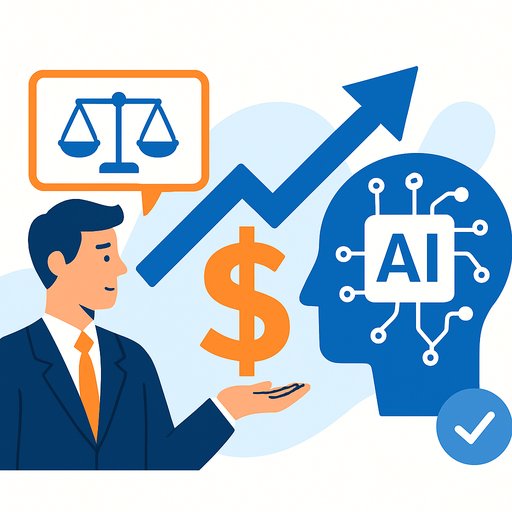Asian wealth management in 2025 faces a critical moment. Geopolitical tensions, tighter regulations, and unpredictable markets have reshaped the advisory environment. Yet, Artificial Intelligence (AI) is the force transforming the industry at an unprecedented pace. Technologies such as generative AI and predictive analytics are changing how advisers find clients, build portfolios, and ensure compliance. Meanwhile, clients expect more personalized, transparent, and technology-driven service. Success now depends on integrating human insight with AI capabilities. Advisers who combine empathy, expertise, and technology will lead; those relying solely on old methods risk falling behind. The future of private banking is here—and it’s powered by AI.
The New Wealth Management Reality: Pressure from All Sides
Being a successful adviser in Asian wealth management and private banking has never been more demanding or more exciting. The industry is dealing with multiple external challenges: ongoing market volatility after Covid, China-U.S. tensions, the Ukraine conflict, and inflation shocks. Clients are cautious but expect more. Interest rate hikes in 2024 forced advisers to rethink portfolio strategies. Regulatory scrutiny has intensified across Asia—from Singapore’s strict enforcement on misconduct to Hong Kong’s new family office rules. Competition is fierce. Global private banks are expanding in Asia, while local players and digital platforms like Endowus, StashAway, and Kristal.AI are gaining market share. Cost-income pressures persist, talent turnover is high, and front-line advisers face tough short-term targets as wealthy clients have more choices than ever.
AI’s Breakthrough Moment in Wealth Management
Artificial Intelligence defines 2025. Once dismissed as hype, AI is now mainstream in wealth management. Institutions like UBS, HSBC, and Citi have deployed AI copilots to assist thousands of relationship managers. BloombergGPT is transforming market research. Wealth managers apply predictive analytics to anticipate client needs, optimize portfolios, and deliver highly personalized reports.
UBS’s AI project 'UBS Red' integrates Azure AI Search and Azure OpenAI Service, giving client advisers instant access to essential information during meetings. This streamlines advisory work and offers a clear edge. In May 2025, UBS introduced AI-driven avatars of investment analysts that deliver research insights through short, engaging videos. Using OpenAI and Synthesia technology, analysts record their voice and likeness, and AI creates lifelike video presentations. Analysts review these for accuracy and compliance before release. UBS plans to increase production from 1,000 to 5,000 videos annually to meet demand for concise digital content, freeing analysts to focus on deeper strategy. These avatars support but do not replace human expertise, with clear labeling as AI-generated. Minor limitations remain—such as subtle tonal nuances—but this initiative shows how AI reshapes research delivery without reducing human value.
Key AI Applications Now Include:
- Client Prospecting: AI analytics identify high-potential prospects by analyzing behavioral data and digital footprints.
- Meeting Preparation: Generative AI summarizes portfolios, market moves, and client updates to prepare advisers efficiently.
- Portfolio Optimization: Tools like BlackRock’s Aladdin AI model real-time scenarios, enabling dynamic rebalancing and confident explanations.
- Compliance & Suitability: AI automates suitability checks and flags regulatory risks, reducing errors and bottlenecks.
- Client Communication: Natural language generation creates personalized follow-ups, portfolio reviews, and investment ideas quickly.
“AI won’t replace advisers. But advisers who use AI will replace those who don’t.”
Top 5 AI Tools for Advisers in 2025
- BloombergGPT – AI-powered financial research and sentiment analysis.
- BlackRock Aladdin AI – Portfolio modeling and risk analytics.
- UBS AI Copilot – Internal generative AI supporting client preparation and advisory tasks.
- Wealth Dynamix AI CRM – Smart client lifecycle management for external asset managers and private banks.
- ChatGPT Enterprise for Banking – Custom AI for investment narratives and personalized reporting.
Why Human Skills Still Matter—More Than Ever
Despite AI’s growth, clients still seek human trust and judgment. High-net-worth and ultra-high-net-worth families in Asia expect advisers who combine digital fluency with empathetic, nuanced conversations. Advisers must ask insightful questions, interpret AI-driven insights within context, and offer advice aligned with personal goals, family dynamics, and cross-border challenges.
This is especially true as next-generation inheritors—typically in their 30s and 40s—take control of family wealth. They are digitally native, globally mobile, and values-driven, focusing on sustainability, impact investing, and digital assets.
Next-Gen Client Priorities (2025)
- ESG & Impact Investing: Portfolios reflecting purpose beyond returns.
- Digital Assets: Interest in tokenization, crypto ETFs, and blockchain-based wealth tools.
- Global Mobility: Immigration-linked investments and multi-jurisdictional planning.
- Tech-Savvy Advisory: Expectation of AI-enhanced, seamless, app-driven interactions.
- Family Governance: Transparent wealth structuring for intergenerational transfer.
A Profession Redefined: Regulation, Training, and Standards
Professional standards face increasing scrutiny. Regulators across Asia—from Singapore’s MAS to Hong Kong’s HKMA—demand higher advisory quality. MAS’s recent enforcement actions highlight the risks of non-compliance, while HKMA enforces stricter licensing for family office advisers. Globally, fee-based advice models grow, with countries like Australia and the UK banning retrocessions. Asia is expected to follow, pushing advisers to deliver clear, measurable value beyond simple transactions.
Firms invest heavily in AI literacy. UBS trains 10,000 bankers on AI use cases, while HSBC integrates AI assistants into relationship manager workflows. The message is clear: adapt or fall behind.
Upcoming Regulatory Changes to Watch
- Singapore (MAS): Increased scrutiny on suitability and mis-selling.
- Hong Kong (HKMA): Stricter licensing requirements for family office professionals.
- China: Expanded rules on cross-border advisory and digital RMB integration.
- Global: EU MiFID III and ESG disclosures affecting Asian high-net-worth portfolios.
From Survival to Success: What Advisers Must Do Now
- Embrace AI Relentlessly: Use AI across prospecting, preparation, compliance, and communication.
- Sharpen Human Skills: Develop emotional intelligence and ask deeper client questions.
- Commit to Continuous Learning: Stay current on regulations, tax, trust structuring, and evolving client needs.
- Focus on Value: Present clear, outcome-driven value propositions rather than product pitches.
- Think Global: Prepare for clients with cross-border lives and complex portfolios.
The Human-AI Edge
Asian wealth management has entered an AI-augmented era where technology handles scale and speed, and humans provide empathy and judgment. Advisers who merge these strengths will lead the industry’s future. Those who resist change risk falling behind. AI has already changed the advisory role—the question now is whether advisers will evolve fast enough to meet the next decade’s demands.
Your membership also unlocks:





